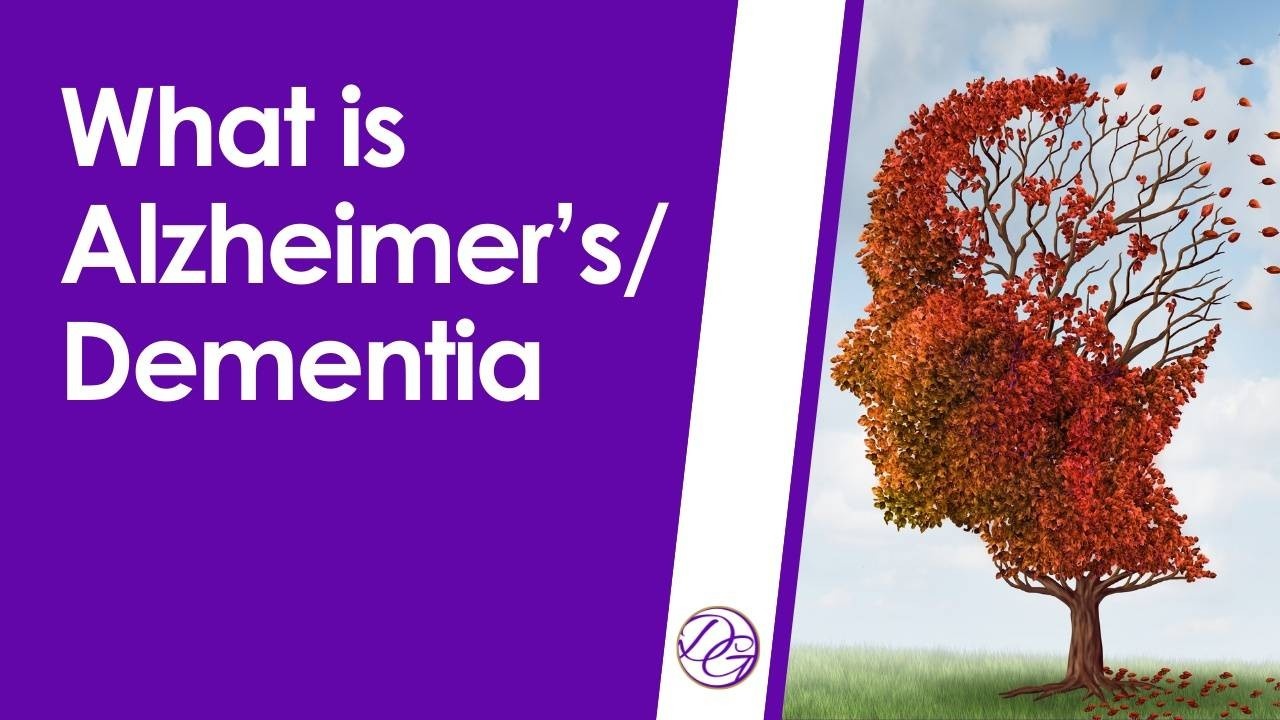What is Alzheimer’s/Dementia?

Years ago it was commonly believed that memory issues were only related to old age. Our grandparents would comment about their friends stating “they are senile”.
Currently today there is an actual avoidance from people of this generation stating or believing their loved ones have dementia. What people don’t realize is that the sooner they admit there is a problem and have a doctor test them and make an accurate diagnosis, the sooner something can be started to slow down the progression of the disease. So, I would like to tell you a little about what alzheimers/dementia is.
This disease goes through stages of irreversible progressive changes. People sometimes get confused between normal aging and mild cognitive impairment. I would like to explain to you a very easy way to understand this disease. You have to picture the brain as a large road map with an abundance of roads and bridges controlling different parts of the brain. What happens with dementia is that due to plaques forming in the brain, it basically will blow out a bridge. So when mom is performing a task or trying to remember a detail and the thoughts in her brain get to the bridge to cross as it always has, the bridge is gone. This will cause blanks when asked to remember details or perform a task.
Some examples are:
- Forgetting Appointments or plans
- Lack of focus
- Problems understanding instructions
- Poor judgment.
This stage usually lasts between 2-6 years. The patient themselves will notice the change and make excuses for what they can’t remember. They will be very self conscious, and their conversations will really subside because they don’t want to forget things so they become very quiet. They will rely on others around them to fill in sentences they have started, and they often will refer to themselves as being stupid. This is very frustrating because they can’t communicate the way they want to. The best thing to do is to take your time with them when communicating and give them a chance to remember. Be understanding and helpful at the same time. As the disease progresses it will be time to give up complex tasks and they will need to be performed with one on one supervision. Maybe initially only supervision for activities and tasks at home are required, but as the roadways are destroyed due to plaque, you may have to actually assist with some of their activities. This stage is followed by the dementia stage which will last for the rest of their life and will go from mild to severe.
The really important thing is to take mom for regular physician appointments and point out the changes. The physician will do cognitive tests as part of their visit and monitor the changes along the way. If the cognitive tests indicate possible mild cognitive decline or dementia, they may order a PET scan which is a picture of the brain so verification of amyloid plaques in the brain can be identified. This indicates a diagnosis of dementia. Once a diagnosis is made, a discussion will follow regarding medication. The journey that your loved one will have to travel carrying a diagnosis of alzheimer’s/dementia is a very difficult one not just for the patient, but also for the family. So my advice to you is if you see significant changes in mom’s cognition, have a work up completed. Sometimes the changes can be from abnormalities in the body or a simple dehydration, but at least once completed you will know if the changes are normal changes with age or a diagnosis of mild cognitive impairment. The medications we have now won’t reverse the disease, but at least it can slow down the progression and hold onto some of mom as you know her.


